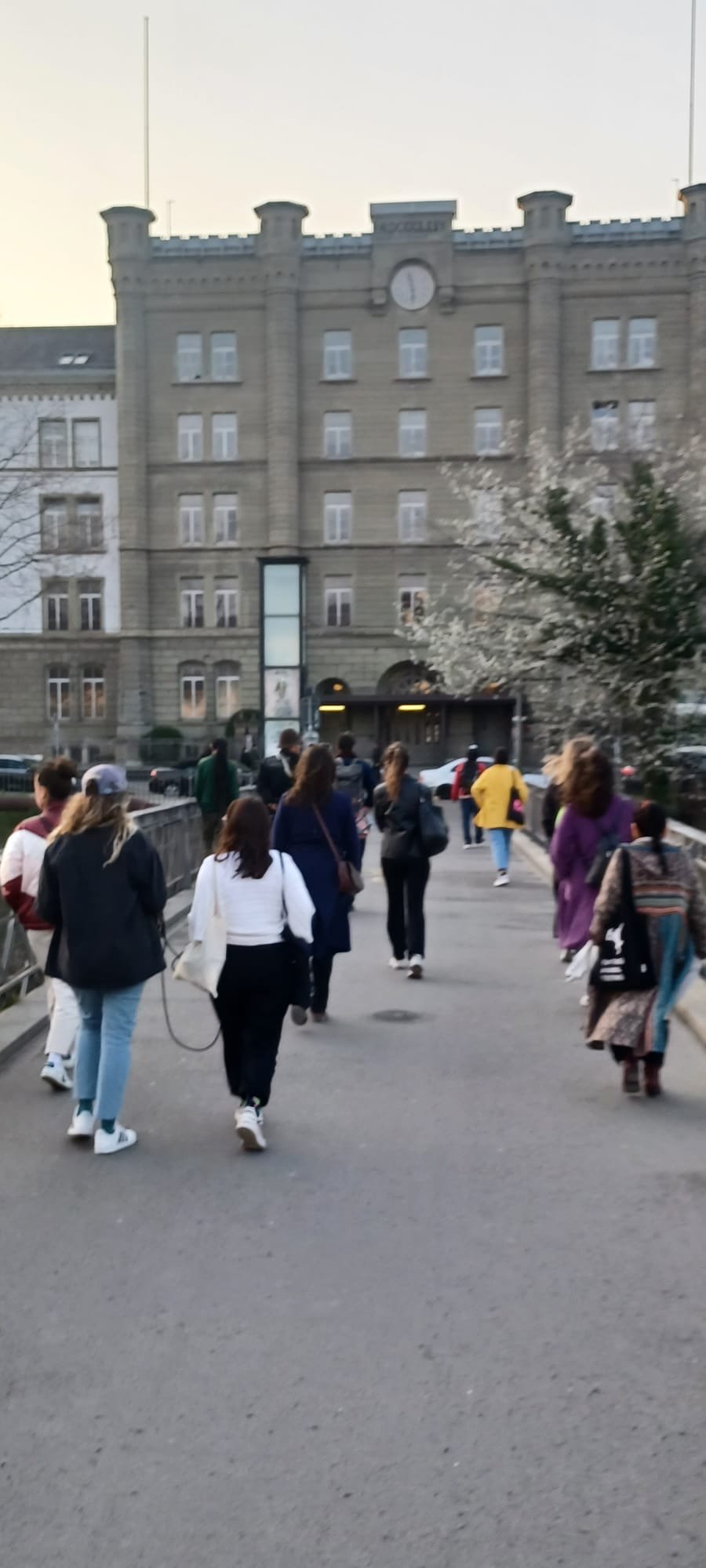Derivas sonoras
La nostalgioteca
La nostalgioteca es el nombre que le hemos dado a una metodología que diseñamos hace algunos años y que hoy traemos al Festival El Caldo, en el Teatro Gessnerallee de Zürich.
A través del sonido, proponemos un encuentro con la memoria de ciertos movimientos: los viajes, las migraciones, las huídas, los regresos, las travesías. Para que, mientras se camina, se haga evidente la relación entre movimiento y sonido como elementos claves para despertar nuestra voluntad de narrar y escuchar lo vivido.
“La nostalgioteca” is the name of an artistic methodology that Noís Radio designed some years ago and that today is in El Caldo festival, at the Gessnerallee, Zürich.
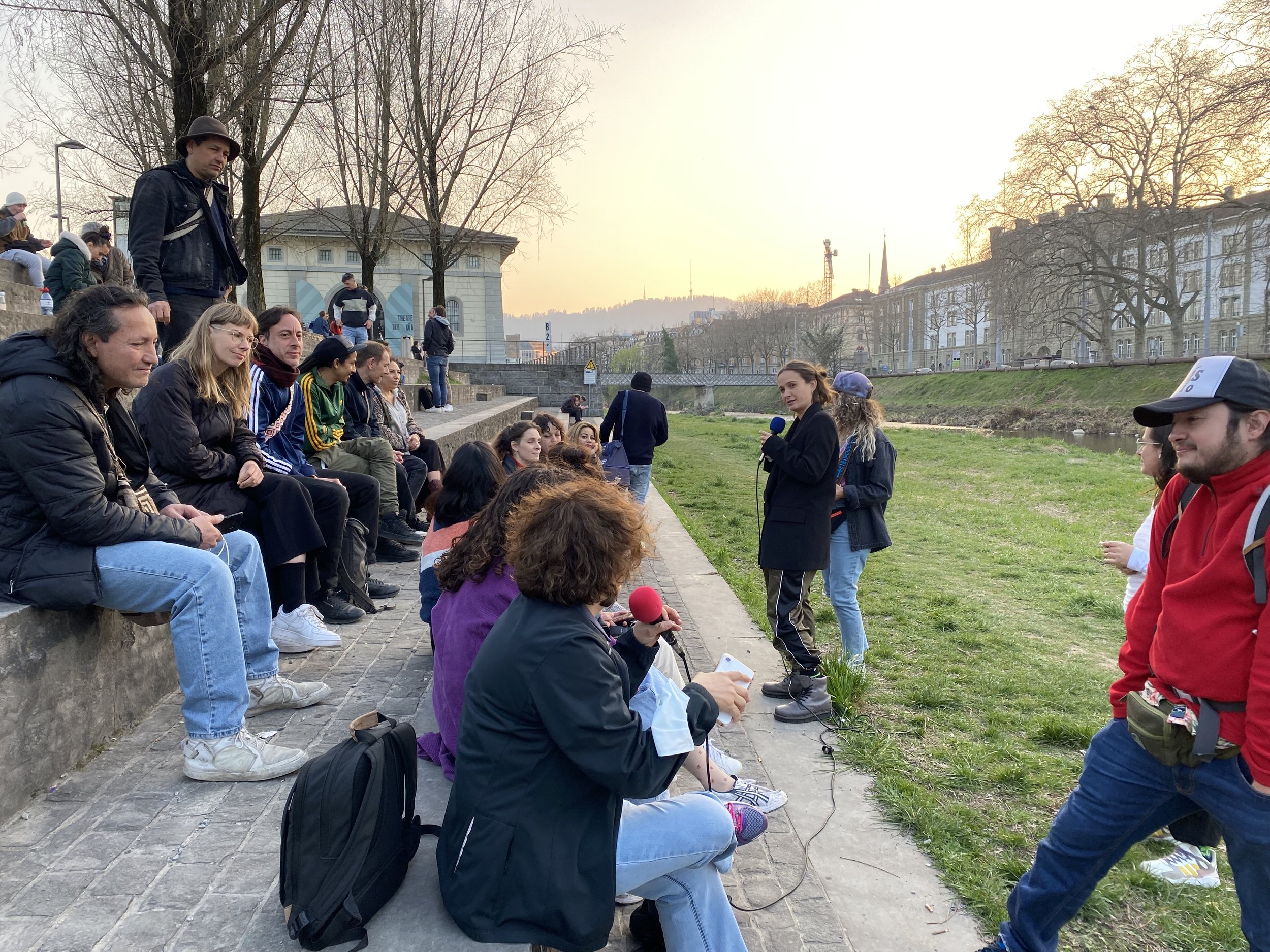
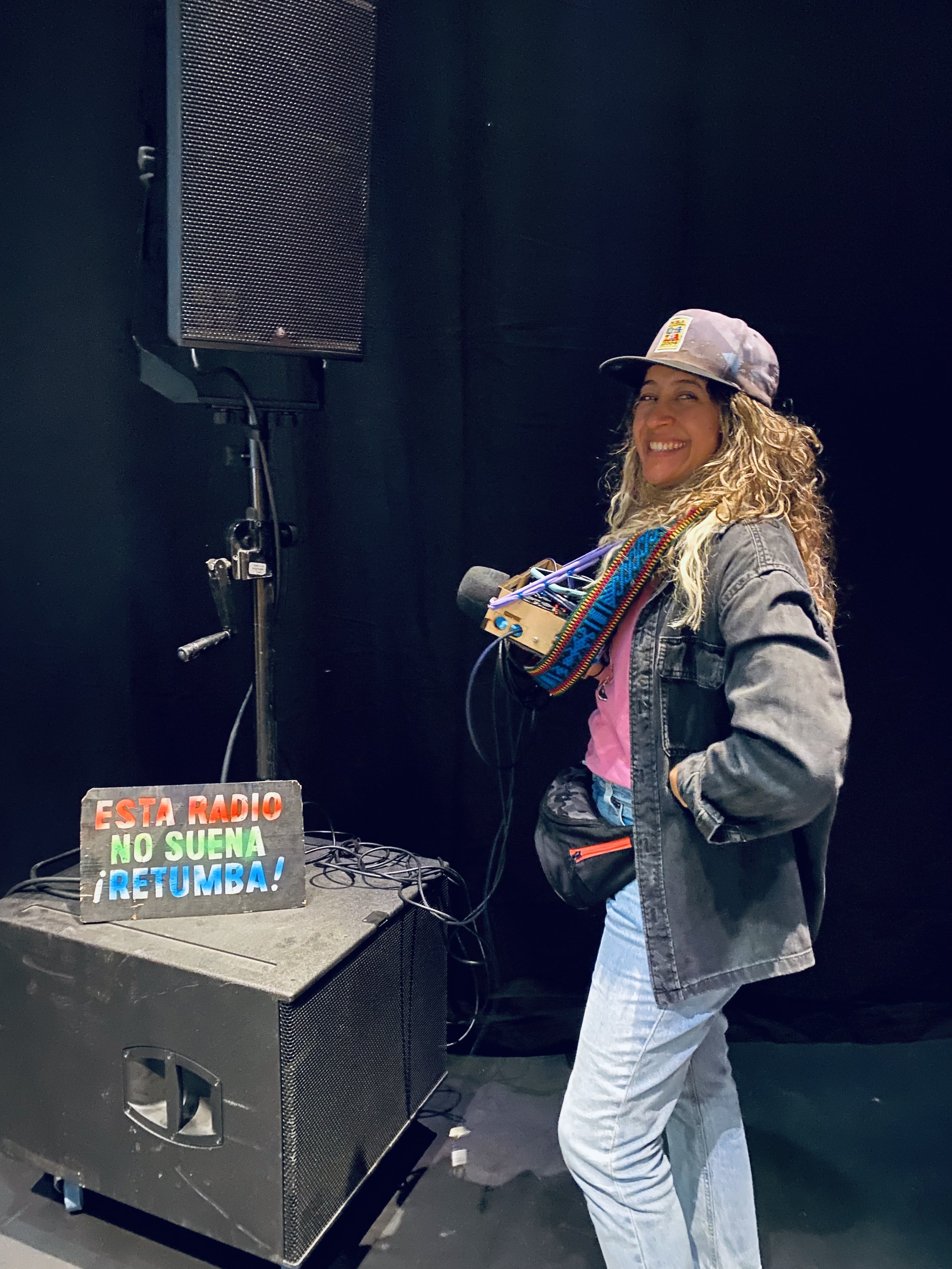
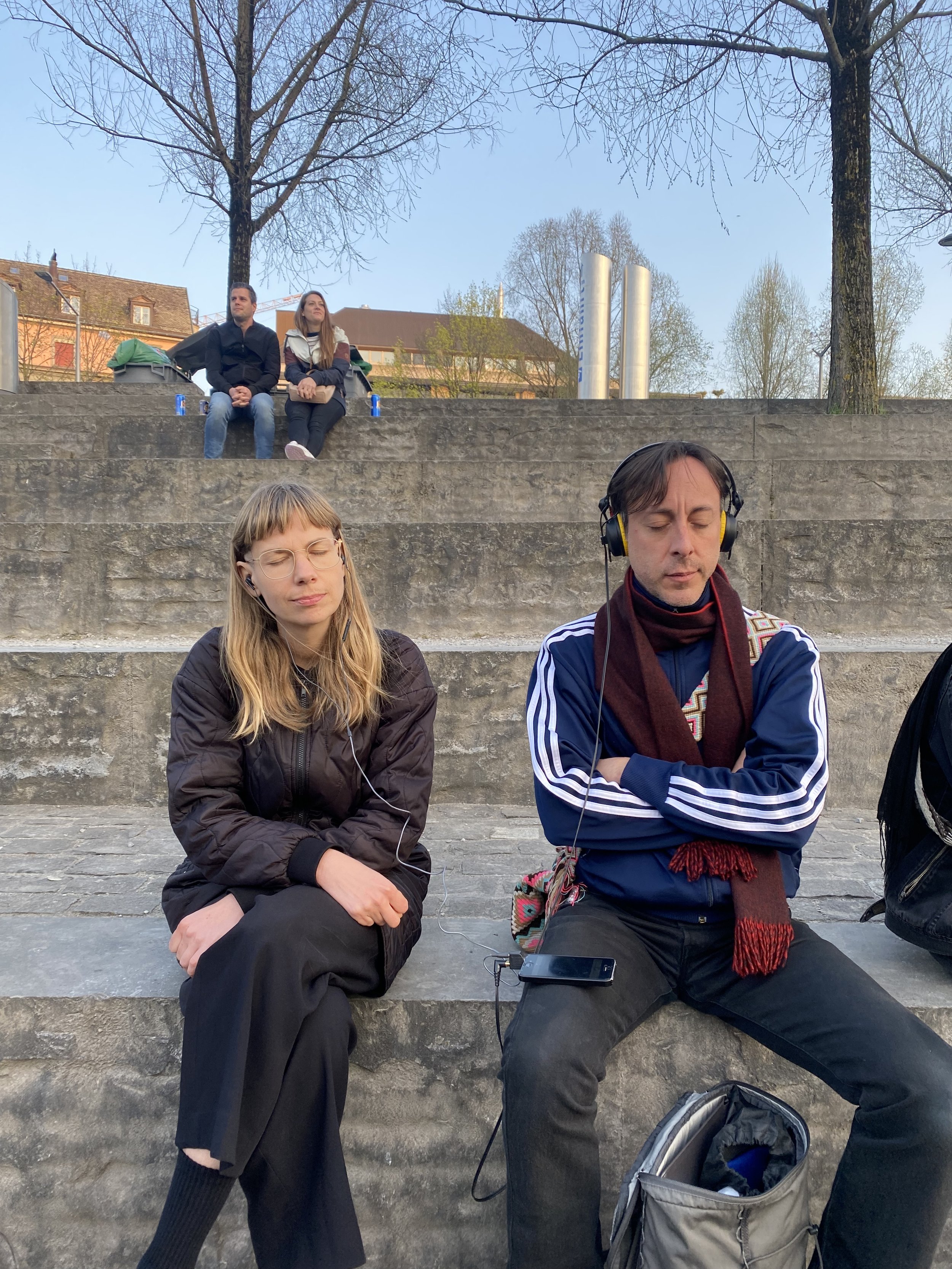
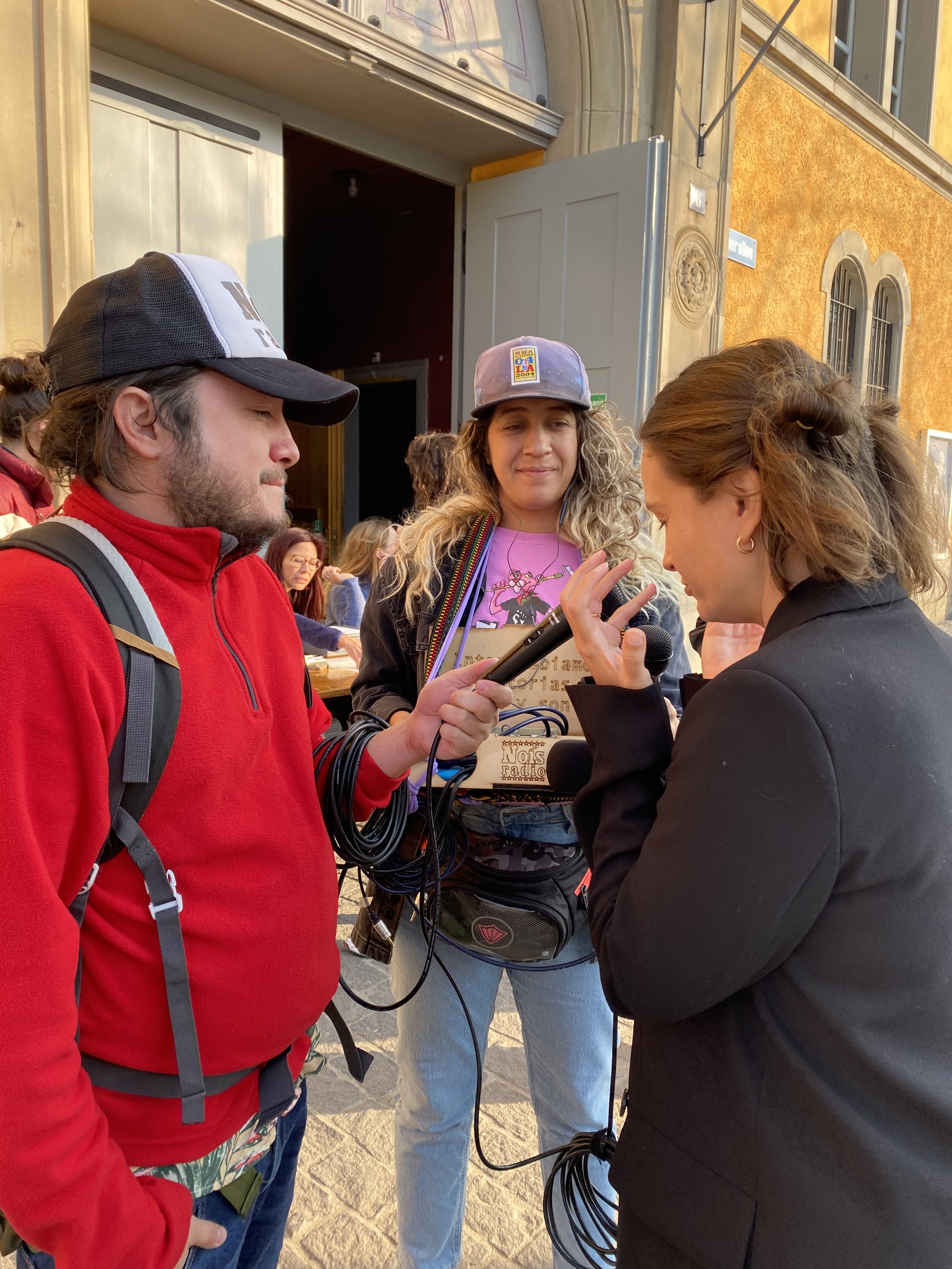
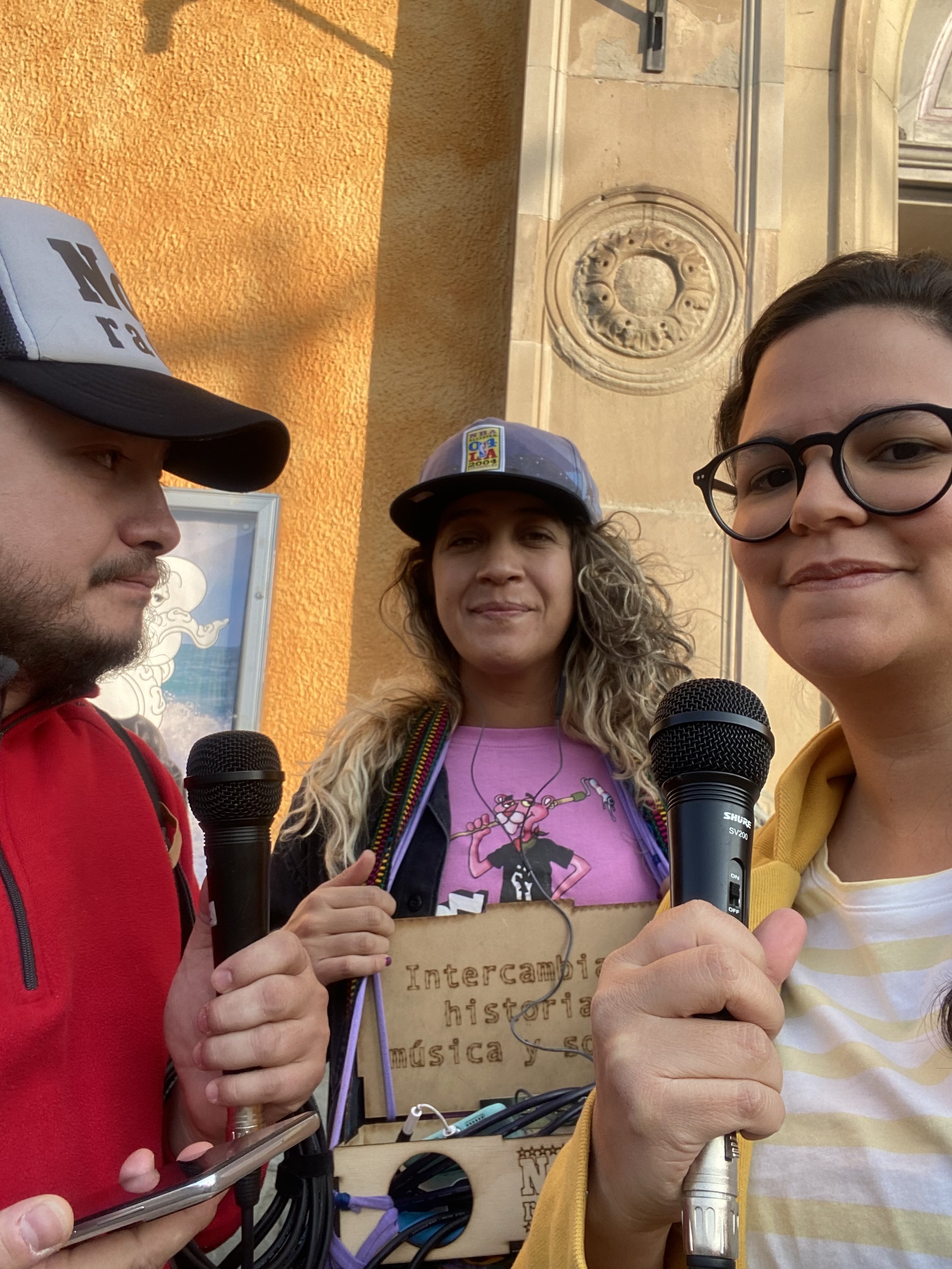
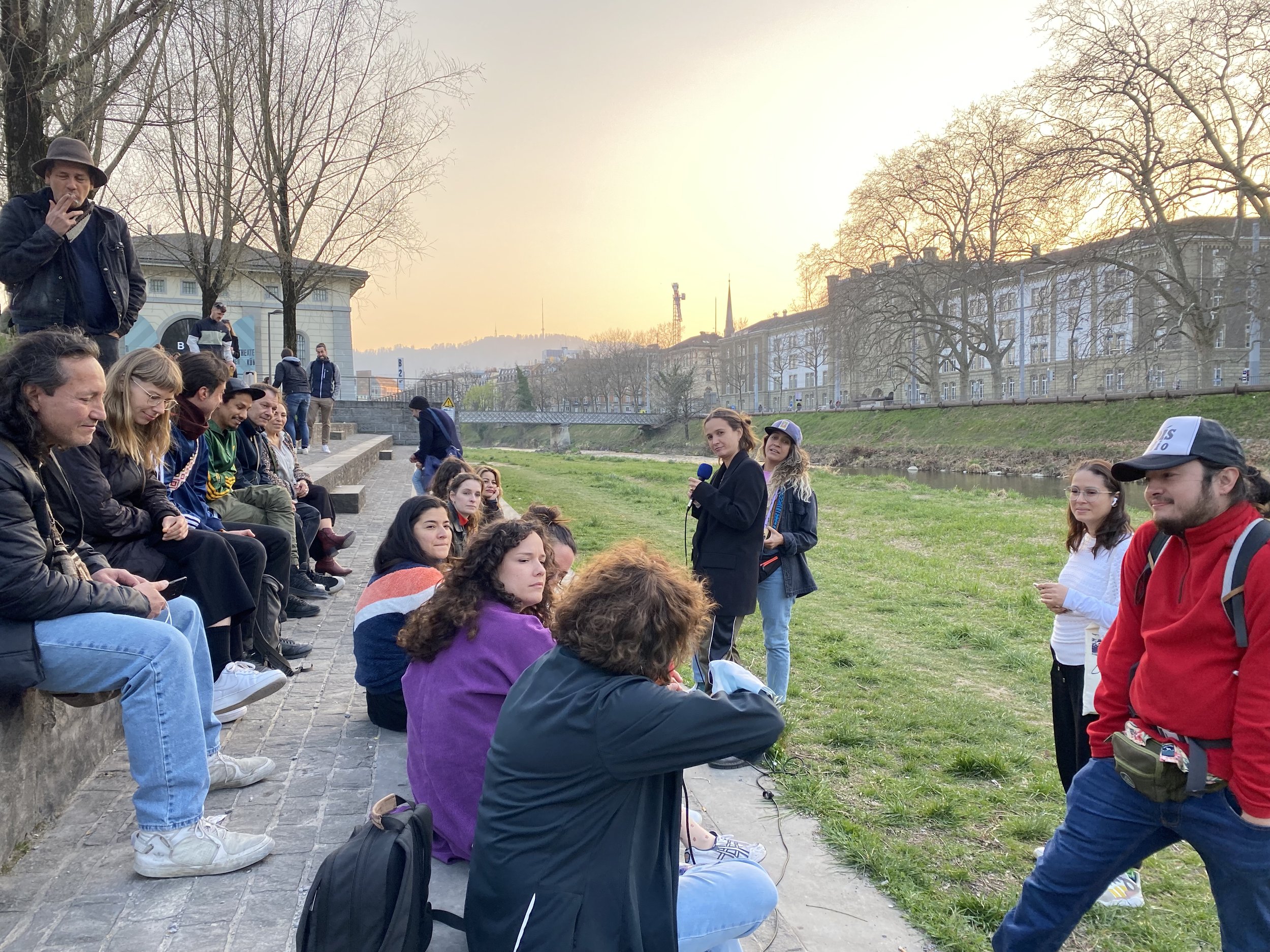
How does it work?
It is an outdoors radio walk in which sound appears as a conversation starter and memory connector on topics such as travel, movement and migration.
The participants are invited to take the walk and listen to an audio. Based on what they have heard, they can share a story, a sound, a sensation or a memory of their own.
In addition, the same participants will be able to question other people outside the group (passers-by meet along the way) to propose the exchange of sounds and stories to enrich the nostalgioteca.
NOSTALGIOTECA SOUND ARCHIVES
Translations from some of the audios:
Francia Márquez intervention in “Somos Agua en el Agua” radio show. Cali, 2018
Nosotros llegamos a vivir a la orilla de dos ríos, el río Ovejas, con el que yo tengo muchas relaciones y el río Cauca, donde solo tengo los recuerdos de mis mayores y mayoras. En el río Ovejas nosotros íbamos a pescar, me recuerdo cuando yo estaba pequeñita, íbamos con mi abuelo, colocamos las barbacoas y nosotros veíamos a mi abuelo en calzoncillos allá, mirando a qué hora entraba el pescado y mientras tanto, con mis primos más mayores, prendíamos una fogata con mucha leña que habíamos encontrado a la orilla del río. Mi abuelo sacaba los pescados, los colocábamos a asar en una hoja de plátano y también asábamos el racimo de plátanos que habíamos llevado. Eso era muchas veces en noches de luna. Y para mí esa es la historia más linda que tengo del río.
We came to live on the shore of two rivers, the Ovejas river, with which I have a strong relationship and the Cauca River, where I only have the memories of my mayores y mayoras (my elders). Memories of my elders. In the Ovejas river we used to go fishing. I remember when I was a little girl, we used to go with my grandfather. We set up the barbecues and we would see my grandfather over there, looking at what time the fish would come in and meanwhile, with my older cousins, we lighted a fire with a lot of wood that we had found on the shore of the river. My grandfather taked out the fish and we grilled them on a plátano leaf and we also roast the bunch of plátanos we had brought with us. That was many times on moon nights. And for me that is the most beautiful story I have of the river.
Alba Wobman Torres intervention in “Desandares” radio documentary. 2021
When I worked at the typographer´s, I made his calendars, based on the calendars where you saw pictures of the Swiss mountains, with snow, I used to say to myself, what a dream, but I never imagined I was going to live like that, I mean, that I was ever going to go to Switzerland, never, never.
I went myself to that company without speaking a word, but in those times life in Switzerland was so good they didn't mind, I told them I spoke English, French, Spanish, and they believed me. I didn’t know anything, not even English. Yes, I took a big risk, I said I knew French, English and German, I swear to god. The guy, my boss, spoke to my husband, not me, can you imagine? So he called a girl who worked there, she was Spanish, to show me around the warehouse, where all the shoes were stored. I was so stupid because I thought that being from Spain she would speak in Spanish… so when I went to the warehouse and my husband stayed in the office with my boss, I said to her, just between us, because I thought she spoke Spanish… I said “hey, I told this guy I know French and English but I just know Spanish” and she said “Well lady, you´re going to have to tell him the truth because you need to know the languages to work here”.
A week later they told me I had to go outside because there was no staff, that I had to go sell the shoes” I came home crying almost everyday. And my husband told me, “Don’t go”, and I said “I have to go, I have to go”. And I did. But go figure, I worked there for sixteen years.
